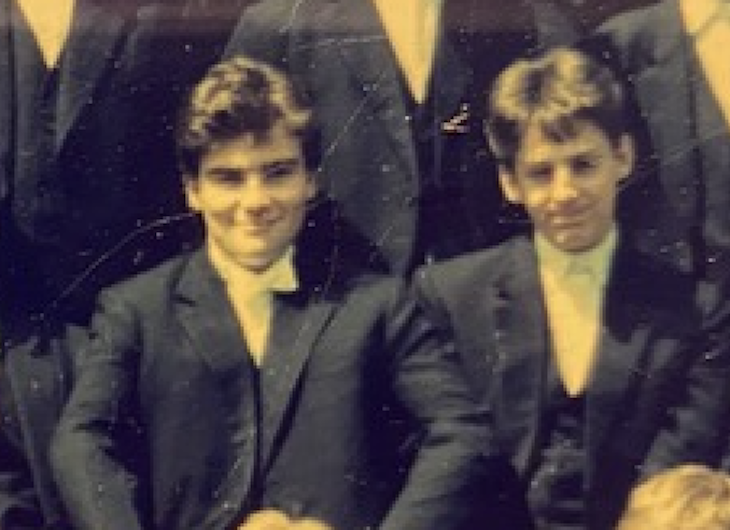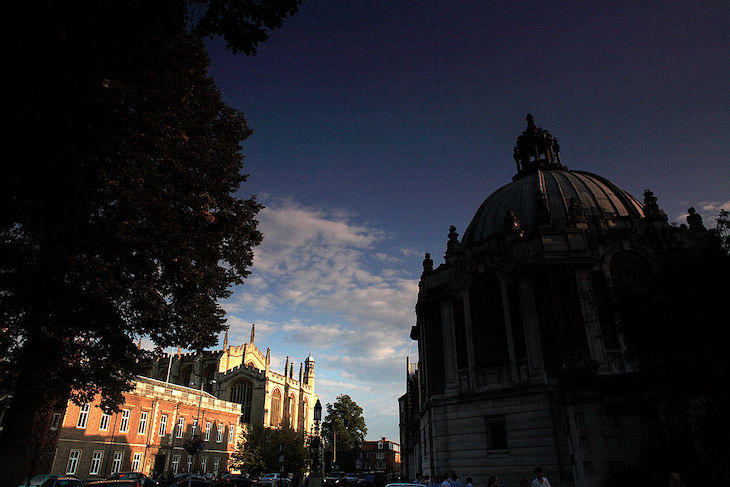Seeing the mugshot of Old Etonian Douglas Clifton Brown following his conviction for attempted murder, transported me straight back to 1986. We were in the same house and the same year at school: Clifton Brown and his friend bullied me regularly, making my life hell. Triggered, I went into the attic and found an old image from my schooldays:

Even in this supposedly formal house photo, the camera shows him elbowing me out of the way. He sports a smug smile and stares straight at the camera, whereas I didn’t dare to acknowledge the photographer.
My house, particularly when I first arrived, suffered from endemic bullying. Young for my year, small and an only-child, I didn’t stand a chance against these predatory abusers. While I never saw myself as a victim, I do think of myself as a survivor of a less enlightened era, albeit one without the provocations offered by online content creators.
As my father used to say, ‘If you think you are beaten, you are.’ Or, as my mother more maternally said on those desperate journeys back to school down the M4, ‘Believe in yourself, but keep it a secret.’
Indeed, it is these ‘little and often’ parental conversations that represented the upside of my own experience. Young people then, as now, need to feel that they have somewhere safe to turn to, in order to navigate the inevitable opportunities and challenges of modern adolescence in an increasingly complex physical and online world. They were ‘it’ for me, not the school.

Eton’s incoming Provost, Nicholas Coleridge, recently gave a talk in which he said that, for most Old Etonians, the school was at its best the summer they left. That was emphatically untrue in my case. I was glad to see the back of the place.
Yet I have much to be grateful to Eton for. My closest social and business confidantes continue to be Etonians, and I daresay the trials and tribulations I suffered were character building. I doubt that I would have started my own investment firm by the age of 30 without the fire that the likes of Clifton Brown put in my belly.
Being relentlessly bullied in the way I was made me quite resilient. Watching Sky’s recent portrayal of Dr Jim Swire’s dogged approach to his daughter’s murder in the Lockerbie atrocity, I wasn’t in the least bit surprised to discover he was an Etonian.
I left Eton with low expectations of life and a willingness to ‘swing the bat’, which turned out not to be bad strategies – ships are safe in a harbour, but it is not where they’re meant to be. When I told my investors in 2007 that I had positioned their money for an imminent Financial Crisis by selling bank stocks that I didn’t own in the first place, many of them ran for the hills. One told me I should think about an alternate career selling flowers at Paddington Station. Certainly, no one thanked me for the stellar returns I produced the following year.
If you are not being criticised in life for your results, it would appear you will be for your methods. Without the resilience that Clifton Brown taught me, I doubt very much that I would have been able to stand my ground. Success is not often doled out to well-adjusted people.
So, while I applaud the modern obsession with ‘safeguarding’ that would have spared me the worst excesses of the bullies’ attention and perhaps helped the perpetrators to find an alternative path, it is no solution to simply wrap people up in cotton wool.
Etonians are, without a doubt, perceived as among the most privileged people on the planet, regardless of their ‘lived’ experience. Clifton Brown – who threatened to throw his ex-partner down a disused well – represents a double tragedy: not just for the visible decisions he took, but also for the invisible choices he had and squandered.
For my part, the school made me a fierce competitor, as well as highly appreciative of small acts of kindness and loyalty. My school days were emphatically not the happiest of my life, but they certainly set me up for it.
The bullies that I went on to meet in later life were simply taken in my stride. After all, as I used to nonchalantly say on being asked about a well-known workplace tyrant I had first hand experience of, ‘I’ve met harder people at Eton.’







Comments